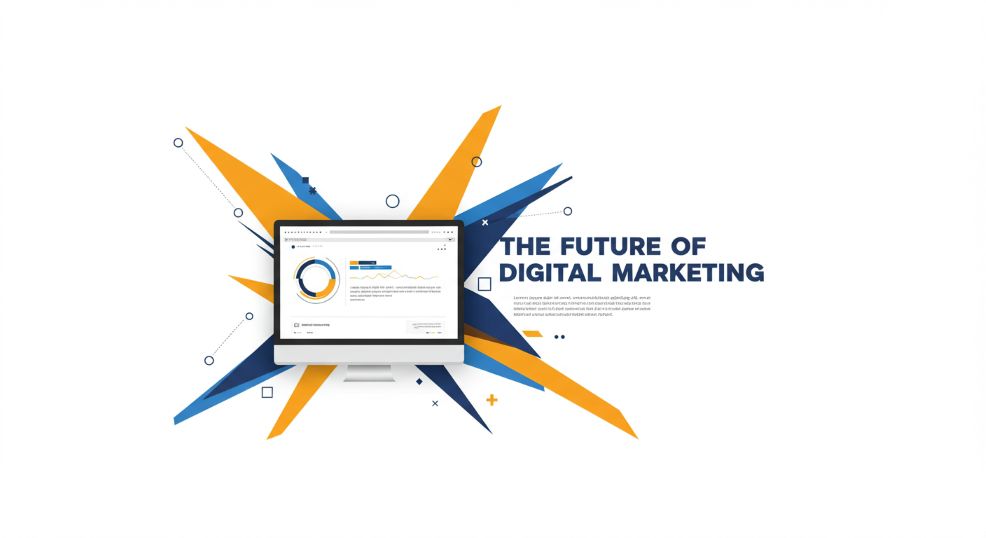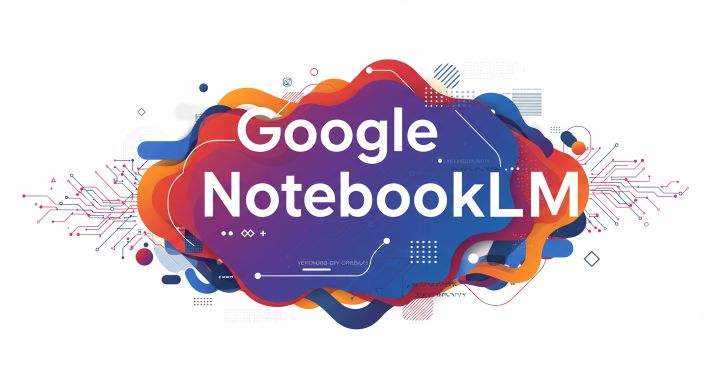Location

Introduction to AI in Digital Marketing
Artificial Intelligence (AI) is no longer a futuristic concept; it is a transformative force reshaping industries, including digital marketing. By enabling businesses to analyze massive datasets, predict trends, and personalize experiences, AI has become indispensable in creating innovative marketing strategies.
Definition of AI in Marketing
AI in marketing refers to leveraging artificial intelligence technologies such as machine learning, natural language processing, and automation tools to enhance marketing efforts. These technologies enable smarter decisions, efficient processes, and superior customer experiences.
Brief History of AI in Marketing
The journey of AI in marketing began with rudimentary tools like email automation and recommendation systems. Today, advanced AI models like GPT and BERT have revolutionized how marketers interact with consumers, crafting campaigns that feel intuitive and personal.
Key AI Technologies Transforming Digital Marketing
Machine Learning
Machine learning enables systems to analyze patterns and make decisions with minimal human intervention. From recommending products to predicting customer churn, it has become a cornerstone of modern marketing.
Natural Language Processing (NLP)
NLP powers tools like chatbots, sentiment analysis, and automated content generation. It helps businesses understand and respond to customer queries more effectively.
Computer Vision
Computer vision facilitates visual recognition in marketing, enabling features like automated tagging of user-generated content and augmented reality (AR) experiences.
Chatbots and Virtual Assistants
AI-driven chatbots like ChatGPT enhance customer support by providing instant, accurate responses, improving user engagement and satisfaction.
Personalization at Scale with AI
Understanding Consumer Behavior
AI analyzes consumer data to uncover insights into purchasing habits, preferences, and needs, allowing marketers to anticipate customer demands effectively.
Tailored Marketing Campaigns
By segmenting audiences and personalizing messages, AI ensures that marketing campaigns resonate with the right people at the right time.
Predictive Analytics for Better Decision Making
Forecasting Trends and Consumer Needs
Predictive analytics uses historical data to forecast future trends, enabling businesses to stay ahead of the curve.
Enhancing ROI with Data-Driven Insights
Improving return on investment (ROI) is a top priority for marketers, and AI-driven insights are proving to be a game-changer. AI tools collect, process, and analyze vast amounts of data from diverse sources, such as website interactions, social media behavior, and purchase histories. This data is then transformed into actionable insights that allow marketers to make informed decisions. For example, AI can identify which marketing channels deliver the highest ROI, enabling businesses to allocate resources effectively.
Additionally, AI-powered analytics can detect underperforming campaigns in real-time, offering suggestions for improvement or reallocation of budgets. By predicting customer lifetime value (CLV), AI also helps marketers focus on high-value customers, optimizing their efforts to drive maximum profitability. These capabilities not only enhance decision-making but also minimize wasteful spending, ensuring every marketing dollar is used effectively.
AI-Powered Content Creation and Curation
Automated Content Generation
AI tools generate high-quality content, from blogs to social media posts, saving time and resources while maintaining quality.
Optimizing Content for SEO
AI plays a pivotal role in optimizing content for search engine optimization (SEO). By analyzing search trends, keywords, and user behavior, AI helps marketers create content that ranks higher in search engine results pages (SERPs). AI tools like natural language processing (NLP) identify the most relevant keywords and phrases, ensuring content aligns with what users are actively searching for.
Moreover, AI enhances on-page SEO by analyzing elements like meta descriptions, title tags, and header structures to ensure they are optimized for search engines. It can also evaluate content readability, structure, and engagement metrics, providing actionable insights to make the content more appealing to both users and algorithms.
Another significant advantage is AI’s ability to identify content gaps. By examining competitor strategies and existing content, AI pinpoints topics that have not been adequately covered, allowing marketers to fill these gaps and capture new audience segments. Additionally, AI-driven tools continuously monitor and update SEO strategies to adapt to algorithm changes, keeping content competitive and visible over time.
The Role of AI in Social Media Marketing
Social Listening and Sentiment Analysis
AI monitors brand mentions and analyzes sentiments, helping businesses respond proactively to consumer feedback.
AI-Driven Ad Campaigns
aspect of digital advertising. These algorithms analyze vast datasets, including user behavior, demographics, and preferences, to deliver hyper-targeted ads. For instance, AI can determine the best times to show ads, select the most appropriate platforms, and customize content to resonate with specific audience segments.
Programmatic advertising, powered by AI, automates the buying and placement of ads in real time. This ensures that businesses get maximum value from their advertising budgets by targeting users most likely to convert. Additionally, AI continuously monitors the performance of ad campaigns, identifying underperforming ads and making real-time adjustments to improve outcomes. It also predicts trends and consumer needs, enabling marketers to stay ahead of competitors.
Furthermore, AI tools provide detailed analytics on key performance indicators (KPIs) like click-through rates (CTR), conversion rates, and cost per acquisition (CPA). These insights allow marketers to refine their strategies and allocate resources effectively. As a result, AI-driven ad campaigns not only improve ROI but also enhance the overall user experience by delivering relevant and engaging advertisements.
Voice Search and Conversational Marketing
Adapting to Voice Search Trends
With the rapid adoption of voice assistants like Alexa, Google Assistant, and Siri, voice search has become a dominant method of seeking information. AI enables businesses to optimize their content for voice queries, which are often longer and more conversational than text-based searches. This involves using natural language processing to understand user intent and adjusting SEO strategies to include long-tail keywords and question-based phrases. Additionally, AI tools can analyze voice search trends to predict popular topics and tailor content accordingly, ensuring brands remain visible in voice search results.
Leveraging AI for Conversational Interfaces
AI-driven conversational interfaces, such as chatbots and voice-enabled systems, revolutionize how businesses interact with customers. These tools can handle complex queries, provide personalized recommendations, and deliver consistent support across multiple platforms. By integrating AI with customer relationship management (CRM) systems, businesses can offer more targeted and meaningful interactions, leading to increased customer satisfaction and loyalty. For instance, chatbots powered by AI can handle high volumes of inquiries, reduce response times, and create a seamless user experience, making them an indispensable asset in modern marketing strategies.
Ethical Considerations and Challenges
Privacy Concerns
As AI collects and analyzes vast amounts of data, ensuring user privacy and compliance with regulations is paramount.
Avoiding Algorithmic Bias
AI systems must be designed to avoid biases that could lead to unfair practices or misrepresentation.
Future Predictions for AI in Digital Marketing
Hyper-Personalized Experiences
The future of AI promises marketing campaigns tailored to individual preferences, creating unparalleled customer experiences.
Increased Integration with IoT
The integration of AI with the Internet of Things (IoT) is unlocking new possibilities for digital marketing. IoT devices, such as smart home assistants, wearable technology, and connected cars, generate a wealth of real-time data about user behavior and preferences. AI analyzes this data to create hyper-targeted marketing campaigns that deliver the right message at the right moment. For example, a smart refrigerator can notify users about low stock on certain items and offer discounts on replenishments, directly influencing purchase decisions.
IoT-driven AI also enhances location-based marketing. By utilizing geolocation data from IoT devices, businesses can send personalized offers and recommendations to customers when they are near a store or specific location. This level of precision increases the relevance and impact of marketing efforts.
Moreover, AI-powered IoT systems enable dynamic customer interactions. For instance, wearable devices can provide insights into a user’s health and fitness goals, allowing brands to offer tailored solutions like meal plans or workout gear. The seamless integration of AI and IoT ensures that marketing strategies are not only data-driven but also deeply personalized, fostering stronger consumer relationships.
As IoT adoption continues to grow, its synergy with AI will drive innovation, offering marketers unparalleled opportunities to engage customers in real-time, adaptive, and meaningful ways.
Conclusion
Summarizing AI’s Impact on Digital Marketing
AI has transformed digital marketing by enabling smarter decisions, personalized campaigns, and improved customer engagement.
In summary, AI is transforming digital marketing by providing deeper insights, enhancing personalization, automating tasks, and improving overall efficiency. As technology continues to evolve, its integration into marketing strategies will likely become even more pronounced, shaping the future of the industry.
Embracing the Future of Marketing
As AI continues to evolve, businesses must adapt to its capabilities to remain competitive. The future of digital marketing is here, and embracing AI is no longer optional but essential.


